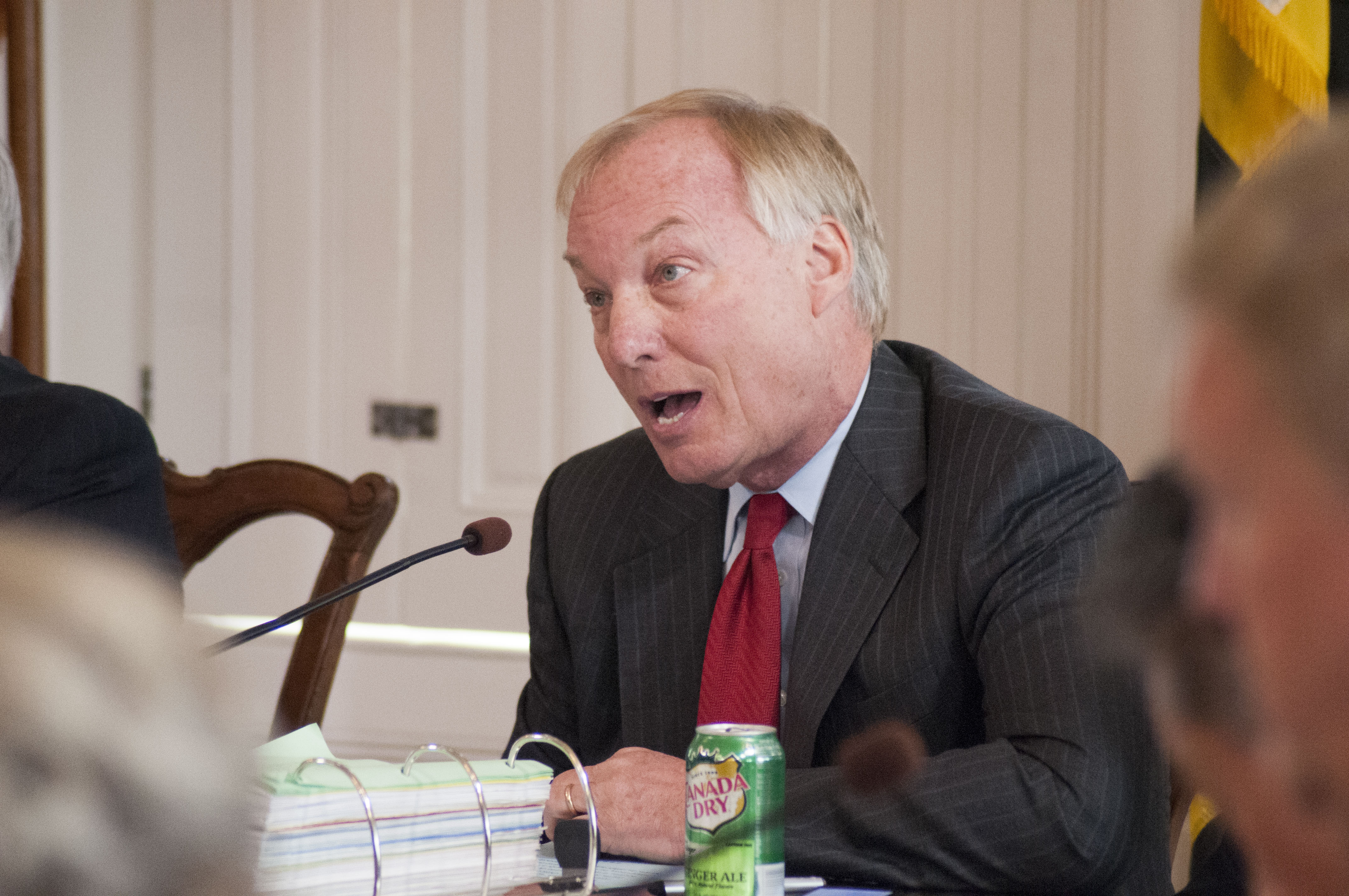By Glynis Kazanjian
Glynis@MarylandReporter.com
Considered “the most endangered Republican incumbent in the nation” by Larry Sabato’s Crystal Ball team, 10-term Rep. Roscoe Bartlett met with Democratic challenger John Delaney for their sixth and possibly final debate of the election season Sunday in Frederick.
Playing to an audience of roughly 100 people, Delaney at times sounded like he was trying to make a case for Mitt Romney’s presidency, perhaps trying to appeal to independent and Republican voters. Bartlett probably reminded some of why he is so vulnerable.
AARP sponsored the sixth forum for the 6th Congressional District race, and Maryland Public Television host Jeff Salkin was the moderator.
Delaney blames government
When asked by Salkin who was to blame for the country’s high unemployment and low economic growth, Delaney blamed big brother.
“I generally agree that our government is to blame for this,” said Delaney, who made a personal fortune as a commercial banker. “Our government
hasn’t been truthful with the American people about what has been causing our employment challenges.”
In other parts of the debate, Delaney said it was business and entrepreneurs who create jobs and that current employment trends and the standard of living for average Americans are “tragic.”
In his opening statement, Bartlett emphasized the country’s economic challenges and growing debt.
“Every six hours there is another billion dollar increase in the deficit,” Bartlett said. “If we don’t do something about Medicare, Medicaid and means-tested programs, there just isn’t going to be enough money to support them.”
Delaney said the central issue facing the country was unemployment.
“Everything we care about, everything we are going to talk about this evening is dependent upon this country reversing the employment trends,” Delaney said. “It is not only about creating jobs but creating good jobs that have a decent standard of living. We need that to afford all the things we care about.”
Differences on Medicare
Both agreed that Medicare, the health insurance for the elderly, is in trouble and that rising health care costs were a major contributor to the problem. When asked how they felt about Paul Ryan’s Medicare plan, Delaney called the plan transferred risk to seniors while Bartlett said offering vouchers would bring competition to the market place.
“Ryan’s plan does not replace Medicare,” Bartlett argued. “It is to give you the opportunity, if you wish, to take a voucher and go shopping in the marketplace. What competition ought to do for health care is what it does for everything else – make it better, more efficient and cheaper.”
Delaney said Ryan’s plan takes the risk from the nation’s inability to pay for health care costs and transfers that risk to seniors. “It will make seniors poorer and will make them not have health care.”
Delaney, whose first public company financed health care businesses, laid out a plan to change the health care delivery model by removing inefficiencies from the system. He said he would move from a traditional fee-for-service system to a “more comprehensive outcome-based system,” while focusing on preventive medicine and technology.
Bartlett said he would repeal “Obamacare” and start from scratch. He emphasized what he thought were two positives of the Affordable Care Act – eliminating pre-existing conditions and allowing young up to 26 years old to remain on their parents’ policies. But Bartlett didn’t mention benefits afforded to women, such as free annual breast exams and annual gynecological check-ups.
Both favor increasing the retirement age
On Social Security, Bartlett essentially said he would increase the retirement age without increasing contributions.
“I think it’s going to be difficult [to increase contributions] for a number of years,” Bartlett said. “We’re probably taxing about as much as we ought to be taxing. I am not sure increased revenues is what we need, if we just increase the retirement age.”
Delaney said he supports an approach like the Bowles-Simpson commission plan.
“I support a balanced approach [which] involves modestly increasing contributions and the retirement age,” Delaney said. “Those two adjustments put in place can fix Social Security and strengthen it across the long term.”
Congressional dysfunction
Delaney hammered Congress for its dysfunction, while Bartlett claimed he works across the aisle more than anyone.
“I come from the private sector where you actually have to agree with people to get things done,” Delaney said. “You can’t run a business, worry about making payroll, think about creating jobs and opening up new operations if you’re fighting about silly things. You have to focus on the common good of the enterprise, which is what we haven’t had enough of in Washington – focusing on the common good of the country.”
“There are several kinds of structural problems going on with Washington right now,” Delaney continued. “People go to the table and go straight to ideology. They actually don’t look at the facts. You have to be careful of that on either side of the aisle.”
The two candidates are scheduled to face off early Wednesday at the Hagerstown Chamber of Commerce, but Hurricane Sandy may derail that.
Bartlett referred to himself as the underdog in the race. And with nearly 50,000 less eligible Republican voters in the newly gerrymandered district, he acknowledges he probably can’t win the race without significant support from independents.
Minutes before the AARP debate began, Bartlett was involved in a car accident. It seemed apparent by the way he was walking into the theater at Frederick Community College, that something had occurred. He let the audience know he was “nursing” a headache from the crash. He also used the accident as an analogy during opening remarks to suggest the country had taken “a pretty big jolt” too, just like the hit he received in the car.






Was Nickolaus Mueller not there?
Way to exclude the Libertarians!